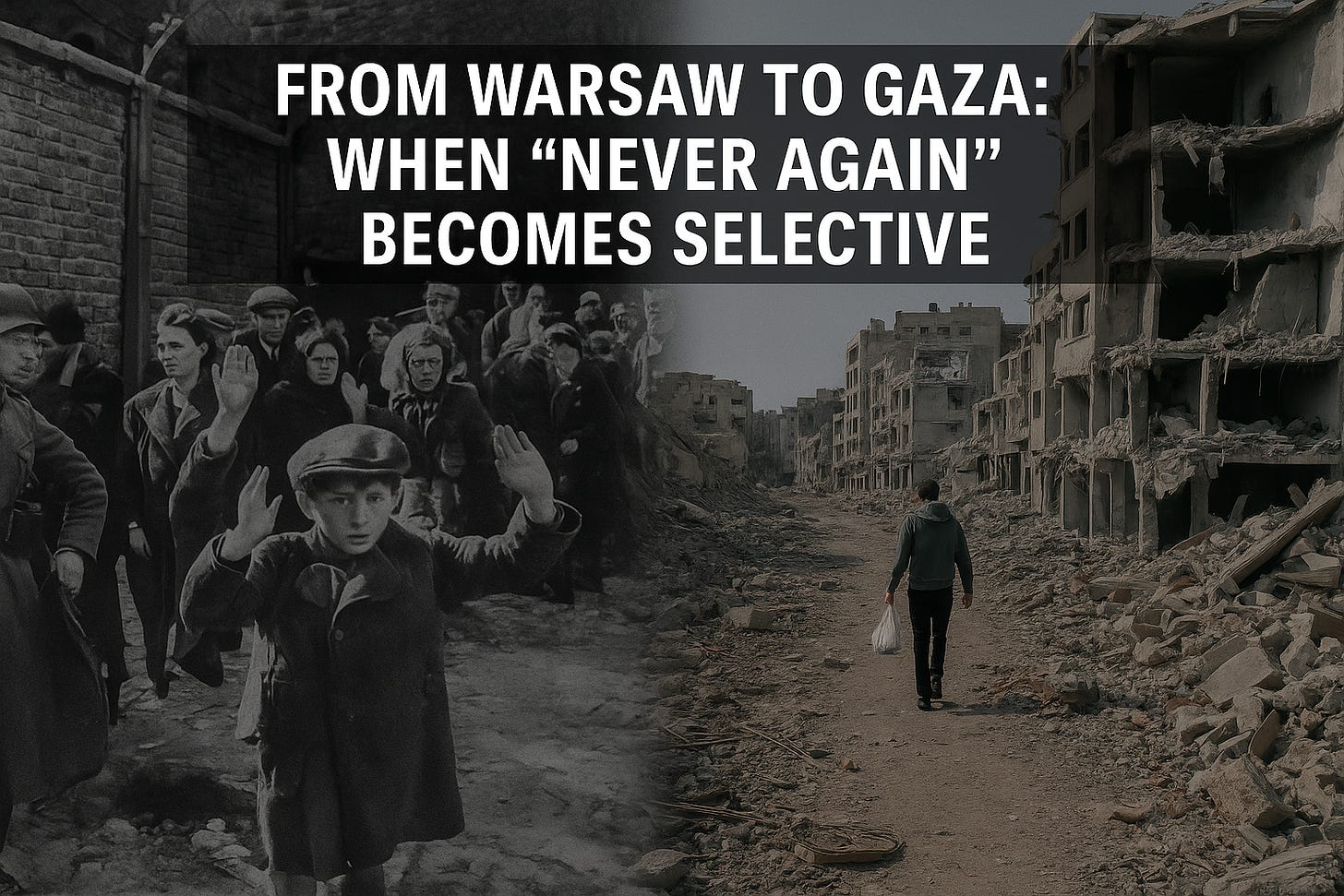In the heart of Warsaw during World War II, over 400,000 Jews were walled into a 1.3-square mile area — the Warsaw Ghetto. Starved, humiliated, and cut off from the world, they endured unspeakable suffering under Nazi occupation. It was not just a place of death, but of slow, systematic strangulation. It was also a place of resistance — most notably the 1943 Warsaw Ghetto Uprising, when starving, desperate Jews took up arms in a final, doomed stand against their oppressors.
That chapter of history is etched into the very soul of the Jewish people. Rightly so. It should never be forgotten.
And yet — somehow — memory is failing us.
Today, in Gaza, over 2 million Palestinians are trapped in what has been called the world’s largest open-air prison. After years of blockade and repeated military operations, Gaza is now a landscape of ruin. Fo
od is scarce. Clean water is nearly nonexistent. Medical supplies and power are intermittent luxuries. Children, who make up nearly half the population, are traumatized before they can even pronounce the word.
As Israeli bombs fall, and as fuel, food, and aid are denied entry, the haunting similarities to the Warsaw Ghetto are impossible to ignore — especially when some of the architects of this policy are descendants of Holocaust survivors themselves.
This is not a comparison made lightly. The Holocaust was a uniquely horrific atrocity, and drawing parallels demands both accuracy and sensitivity. But when human suffering reaches such extremes, we must ask hard questions — not to diminish past atrocities, but to prevent new ones.
How can a nation founded by survivors of one of the world’s worst crimes against humanity oversee policies that trap, starve, and displace another population?
How can people who lived through the trauma of dehumanization and forced ghettoization now tolerate — even advocate for — the same tactics being used in their name?
This is not about Jewish people. It’s about political power and moral accountability. Israeli leaders like Bezalel Smotrich and Itamar Ben-Gvir have openly spoken of “voluntary resettlement” — a polite euphemism for ethnic cleansing. Settlers cheer as neighborhoods are razed. Ministers speak of Gaza as “ours,” waiting to be claimed.
That rhetoric is painfully familiar to anyone who has read 20th-century history.
The lesson of the Holocaust should never have been "never again for us." It should have been "never again for anyone."
To weaponize past suffering as moral cover for present-day cruelty is a betrayal of that history. Memory must be a mirror, not a shield.
This is not a plea for perfection. It is a plea for humanity.
To the descendants of Warsaw’s fighters and survivors: You carry the torch of memory. Please, do not let it become a torch that burns others.



